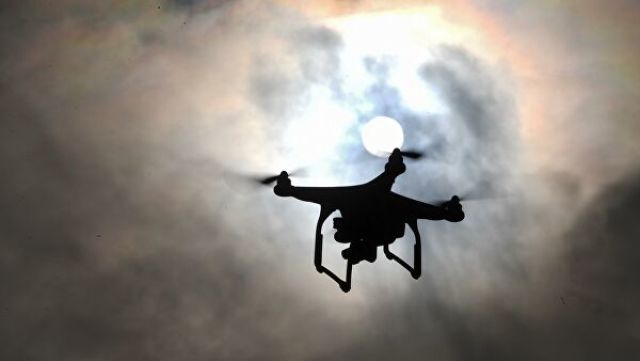The processor developer NPC Elvis was almost 2.5 years overdue in developing an analog of an imported microcircuit, for which he received a fine of 89 million rubles. The chip is needed for drones. It is also used in automated test equipment, flow meters for liquid and gaseous media in industry. The project will now be completed no earlier than 2026.
As CNews found out, the Ministry of Industry and Trade demands a fine of 89 million rubles from the Russian processor developer NPC Elvis for delaying the execution of the state contract by 862 days (almost two and a half years). This follows from the contract card published on the public procurement portal.
NPC Elvis was supposed to perform the R&D project "Development and development of production of a radiation-resistant, high-speed 8-channel time interval meter with a current consumption of no more than 400 mA" (microcircuit), cipher "Digit-41-T".
The state contract was concluded in December 2019. Its cost was 137.5 million rubles.
According to the claim of the Ministry of Industry and Trade dated April 7, 2025, the second stage should be completed by November 20, 2022, and the third by October 20, 2023. However, the reporting materials as of March 31, 2025, have not been completed. On the basis of which the Ministry of Industry and Trade imposed a penalty in the amount of 89.3 million rubles. The amount of which for the second stage includes 55.4 million rubles and for the third — 33.9 million rubles. The second stage included the production of prototypes and the third stage included conducting preliminary tests.
In total, the Ministry of Industry and Trade has issued 96.9 million rubles for this contract over several years, as follows from the contract card.
"The main reason for the delay is related to the deviation of the parameters of the microcircuit from the requirements of the technical specification revealed during preliminary tests," a representative of NPC Elvis told CNews. "This required a revision of its topology and a repeat manufacturing cycle on the production line."
According to him, the work should now be completed in mid-2026. "Issues of financial obligations, including penalties, will be resolved within the framework of the current contract and in a constructive dialogue with the customer," the company notes. "The current situation is part of the workflow when creating innovative products."
NPC Elvis was supposed to develop and master the production of an analog of a foreign TDC-GPX microcircuit. This chip was mass-produced by the German company AMS.
The product is used in drones, automated test equipment, ultrasonic flowmeters and flowmeters of liquid and gaseous media in industry, medical scanners, etc.
The microcircuit ordered by the Ministry of Industry and Trade should provide measurement of time intervals on two channels relative to one reference channel, the possibility of programmatically adjusting delays on each of the channels and calibrating the nominal resolution relative to the external reference frequency.
In the process of performing OCD, a behavioral model of the microcircuit and a description of the logic of its functioning should be developed for use in computer-aided design systems for electronic equipment.
OCD is performed with simultaneous production development. When developing a microcircuit, components and materials of domestic production should be used.
The work is carried out within the framework of the Russian state program "Development of the military-industrial complex".
Zelenograd NPC "Elvis" was founded in 1990 on the basis of the structural unit of the scientific and production association "Elas", which in the 1960s and 1980s worked in the field of space electronic technology. Today, the company positions itself as one of the leading chip design centers in the country. The developer produces system-on-a—chip (SnC) microcircuits based on its own Multicore design platform, including Multicore processors, radiation-resistant microcircuits for spacecraft, and microcircuits for microwave paths of broadband communication systems.
In 2021, it became known that Elvis would create three mobile processors: for smartphones (the aforementioned Skif), artificial intelligence systems, and Internet of Things devices. The processors were planned to be manufactured at the Taiwanese TSMC factory, which froze the execution of contracts with all Russian customers in 2022 after the start of a special operation in Ukraine.
According to the Kontur database.focus", the company's revenue in 2021 reached 1.1 billion rubles, which is 55% lower than in 2020, when it earned 2.4 billion rubles. Net profit fell by almost 100% and amounted to 2.5 million rubles instead of 237.1 million rubles in 2020.
NPC Elvis is also known for becoming the external manager of the MCST, the creator of the Elbrus processors.

